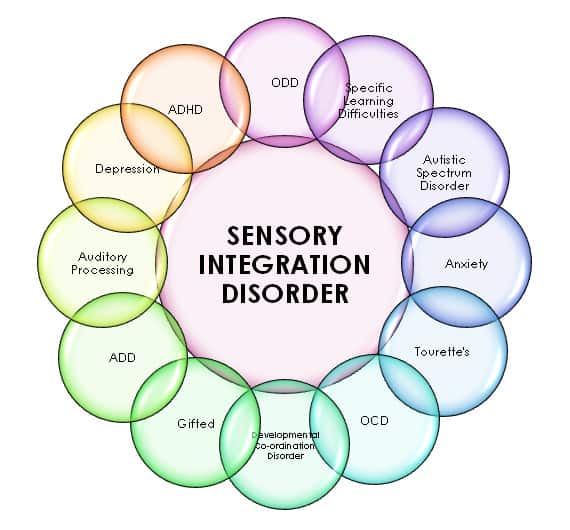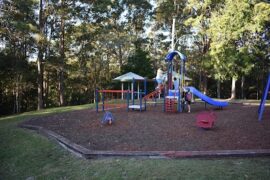Embracing the World of Sensory Processing in Children with ADHD
Hello, remarkable parents! Are you on a heartfelt quest to understand your child with ADHD and their unique sensory needs? You’re not alone! Sensory Processing and ADHD can be quite the dynamic duo, often creating an intricate dance of behaviors and responses that are as individual as your child. This comprehensive guide is crafted with love to illuminate the path for guardians traversing the vibrant landscape of sensory processing and ADHD.
Sensory Processing: The Basics
In the splendid adventure that is childhood development, sensory processing plays a starring role. It’s how our amazing brains interpret the symphony of sensory information from the environment. For most kids, this happens as smoothly as a gentle breeze. However, for some vibrant kiddos with ADHD, sensory processing can sometimes hit a few unexpected notes, leading to sensory sensitivities or challenges that affect their daily lives.
The Connection Between ADHD and Sensory Processing
ADHD is like a kaleidoscope of attention, impulsivity, and activity levels. When paired with sensory processing differences, it can make focusing on a task as tricky as finding a needle in a haystack. And guess what? Research shows that kids with ADHD may be more prone to sensory processing challenges! It’s like their brains are turned up to eleven, making them more sensitive to the hustle and bustle of the world around them.
Identifying Sensory Needs in Your Child
Every child is a unique tapestry of characteristics and quirks, making the identification of sensory needs a delightful puzzle. Some children might be sensory seekers – they simply can’t get enough of certain types of stimulation. On the other hand, some children might be sensory avoiders, finding particular sensory inputs overwhelming. Understanding these individual traits can light the way to supporting your child’s sensory integration.
Strategies to Manage Sensory Processing Challenges
Parenting superheroes, assemble! Here are some strategies that can help you empower your child to navigate sensory processing challenges with grace:
- Create a Sensory-Friendly Environment: Imagine a fortress of solitude tailored to your child’s sensory preferences. This calm haven can include a mix of textures, colors, and lights that either soothe or invigorate them based on their sensory profile.
- Sensory Diet: No, this isn’t about eating textured foods! A ‘sensory diet’ is a personalized activity plan that incorporates sensory-rich activities throughout the day, keeping your child’s sensory needs in check.
- Consistent Routines: Like an anchor in a storm, established routines can provide the structure and predictability that children with ADHD and sensory processing challenges crave.
- Mindfulness and Relaxation Techniques: Introducing activities like deep breathing, yoga, or meditation can help your child become more aware of their sensory experiences and manage their responses more effectively.
Empowering Children Through Self-Advocacy
One of the most uplifting things you can do for your child with ADHD and sensory processing challenges is to encourage self-advocacy. By teaching your little ones to communicate their needs, they can blossom into confident individuals who know how to seek support and articulate what they need to thrive in their environments.

Five Things Parents Should Know in Preparing for Sensory Processing and ADHD
As navigators of the sensory world within ADHD, it’s essential to be well-equipped for the journey. Here are five nuggets of wisdom to help you prepare:
- Understanding is the Key: Dive into the sea of knowledge about both ADHD and Sensory Processing Disorders. Recognizing the signs of sensory overload and distinguishing them from typical ADHD behavior can be your compass in stormy weather.
- Observe and Document: Keep a log of your child’s sensory experiences. Note what triggers a meltdown or hyperactive episode, and what seems to calm them. Patterns will emerge like constellations, guiding you to tailor effective strategies.
- Partner with Professionals: Collaborate with occupational therapists or psychologists who specialize in sensory integration therapy. They’re like seasoned captains who can help you steer through rough waters with expert advice and personalized plans for your child.
- Embrace Flexibility: While structure is essential, being open to adjusting routines as your child grows and changes is just as important. Flexibility allows you to ride the waves of progress and adapt to new sensory preferences your child may develop.
- Build a Supportive Community: Surround yourself with a crew of fellow parents, educators, and therapists who understand sensory processing and ADHD. Their shared experiences can be a lighthouse providing guidance and reassurance when you need it most.
With these insights in your captain’s log, you’re more prepared to help your child with ADHD navigate the sensory seas with confidence and joy.
Charting the Course with Tools and Resources
Embarking on this voyage might seem daunting, but fear not! There are plenty of tools and resources at your disposal. From sensory toys designed to engage or soothe, to mobile apps that can help manage daily routines and sensory diets, your toolkit can be as varied and vibrant as a treasure chest!
Books and online forums provide a wealth of knowledge and personal stories to learn from. Moreover, professional associations and non-profit organizations offer workshops, webinars, and community events to connect you with the latest research and support networks.
Keep an eye out for local support groups and parent training programs as well. They can offer practical tips on navigating life with a child who has sensory processing challenges and ADHD. Much like a ship’s crew, this community can assist you in hoisting the sails and catching the wind towards success.




